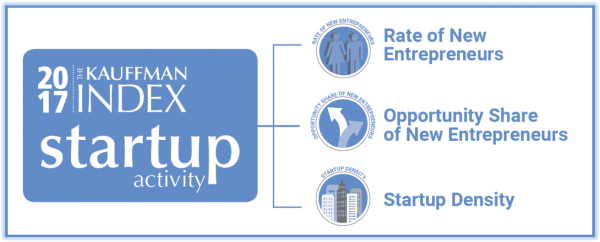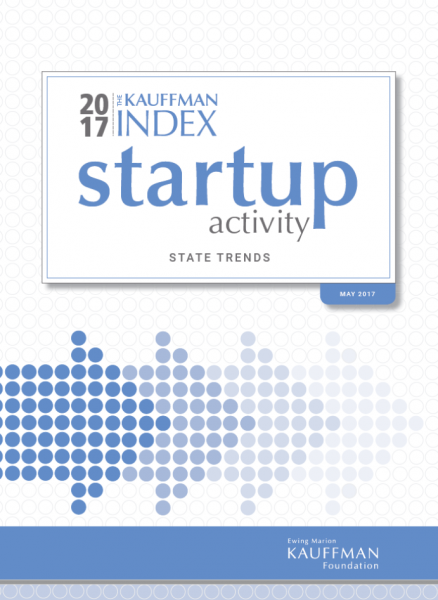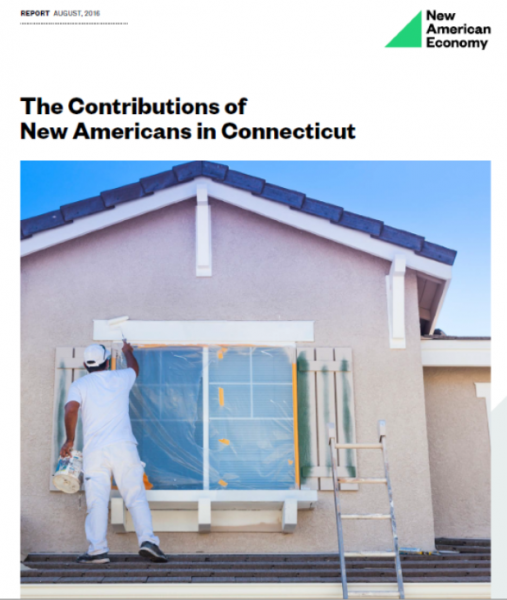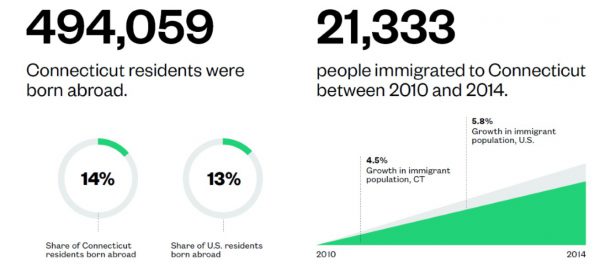Start-up Entrepreneurial Activity Boosts CT's Ranking from 22 to 18 Among Nation's 25 Smaller States
/In a state-by-state analysis of start-up business activities, Connecticut moved from ranking 22nd among the smallest 25 states a year ago to 18th this year – the largest forward progress of any of the nation’s 25 smallest states. Vermont also moved up four positions, from 13th to 9th. And Kansas advanced three positions, from 18th to 15th.
This year among the 25 smaller states, Nevada was top in startup activity, followed by Oklahoma, Wyoming, Montana, and Idaho. Among smaller states, eleven ranked higher than they did last year, five experienced no changes in rankings, and another nine ranked lower.
The analysis was included in the 2017 Kauffman Index Startup Activity State Report, issued this month by the Ewing Marion Kauffman Foundation, based in Kansas City.
Among the twenty-five largest states, the five states with the highest startup activity in the 2017 Index were California, Texas, Florida, Arizona, and Colorado. Seventeen out of the twenty-five largest states had higher levels of startup activity in 2017 compared to last year. Among the twenty-five largest states, the four that experienced the biggest increase in ranks in 2017 were Massachusetts, Tennessee, Washington, and Minnesota. The three that experienced the biggest negative shifts in rank in 2017 compared to 2016 were Louisiana, Maryland, and Virginia.
After two years of large increases, startup activity rose slightly in 2016, continuing an upward trend started in 2014, the report indicated. Only three years ago, the Startup Activity Index was at its lowest point in the last twenty years. Today it has gone up three years in a row, reaching close to the peak before the Great Recession drop, the report pointed out.
Among the twenty-five smallest states, the three that experienced the biggest increase in ranks in 2017 were Connecticut, Vermont, and Kansas. The three that experienced the biggest negative shifts in rank in 2017 compared to 2016 were Hawaii, Rhode Island, and Delaware. In the twenty-five smallest states, the five states with the highest startup activity in the 2017 Index were Nevada, Oklahoma, Wyoming, Montana, and Idaho. Eleven smaller states had higher Startup Activity Index measures this year.
The Startup Activity Index is an index measure of a broad range of startup activity in the United States across national, state, and metropolitan-area levels. The Startup Activity Index captures startup activity along three dimensions:
- The Rate of New Entrepreneurs in the economy— the percentage of adults becoming entrepreneurs in a given month.
- The Opportunity Share of New Entrepreneurs—the percentage of new entrepreneurs driven primarily by “opportunity” as opposed to “necessity.”
- Startup Density—the rate at which businesses with employees are created in the economy.










 Nearly two-thirds of those surveyed in Connecticut (64%) called for “using technology to enhance the way students learn in the classroom” – the highest percentage among the six New England states. A majority called for “more significant efforts to close achievement gaps” (59%), more effective teachers (62%) and changes to the ways schools are funded (57%). The state legislature in Connecticut is currently considering changes in the school funding formula proposed by Gov. Malloy in the wake of a state court decision.
Nearly two-thirds of those surveyed in Connecticut (64%) called for “using technology to enhance the way students learn in the classroom” – the highest percentage among the six New England states. A majority called for “more significant efforts to close achievement gaps” (59%), more effective teachers (62%) and changes to the ways schools are funded (57%). The state legislature in Connecticut is currently considering changes in the school funding formula proposed by Gov. Malloy in the wake of a state court decision.

 Connecticut’s best ranked Congressional district is the 2nd, in Eastern Connecticut, with an 8.7 percent of youth ages 16-24 disconnected, ranking 60th among the nation’s 435 Congressional districts. Next best if Connecticut’s 5th district, in Western Connecticut, ranked 116th with 9.9 percent disconnected youth. The 3rd C.D. ranks 134th, at 10.1 percent; the 4th C.D ranks 104th with 10.3 percent; and the 1st C.D. ranks 167th at 10.9 percent.
Connecticut’s best ranked Congressional district is the 2nd, in Eastern Connecticut, with an 8.7 percent of youth ages 16-24 disconnected, ranking 60th among the nation’s 435 Congressional districts. Next best if Connecticut’s 5th district, in Western Connecticut, ranked 116th with 9.9 percent disconnected youth. The 3rd C.D. ranks 134th, at 10.1 percent; the 4th C.D ranks 104th with 10.3 percent; and the 1st C.D. ranks 167th at 10.9 percent.

 “The full ecosystem around the defense industry in the state must come together to address these overlapping trends – and many of these collaborative initiatives are already producing significant results – but state government still has a unique role to play in bringing the right ideas to the table,” the report explains.
“The full ecosystem around the defense industry in the state must come together to address these overlapping trends – and many of these collaborative initiatives are already producing significant results – but state government still has a unique role to play in bringing the right ideas to the table,” the report explains.

 Among the key stats:
Among the key stats:
 ate “offers the kind of environment that is particularly conducive to growth for companies that are capitalizing on the latest global economic trends. (The top seven are Massachusetts, Delaware, California, Washington, Maryland, Colorado and Virginia.) The ranking is based on measures in five key areas: Knowledge jobs, Globalization, Economic dynamism, digital economy, and innovation capacity.
ate “offers the kind of environment that is particularly conducive to growth for companies that are capitalizing on the latest global economic trends. (The top seven are Massachusetts, Delaware, California, Washington, Maryland, Colorado and Virginia.) The ranking is based on measures in five key areas: Knowledge jobs, Globalization, Economic dynamism, digital economy, and innovation capacity.

 Xeorx is one of 13 companies have made the list every year, including: Aflac, Deere & Company, Ecolab, Fluor, GE, International Paper, Kao Corporation, Milliken and Company, PepsiCo, Starbucks, Texas Instruments, and UPS.
Xeorx is one of 13 companies have made the list every year, including: Aflac, Deere & Company, Ecolab, Fluor, GE, International Paper, Kao Corporation, Milliken and Company, PepsiCo, Starbucks, Texas Instruments, and UPS.


























